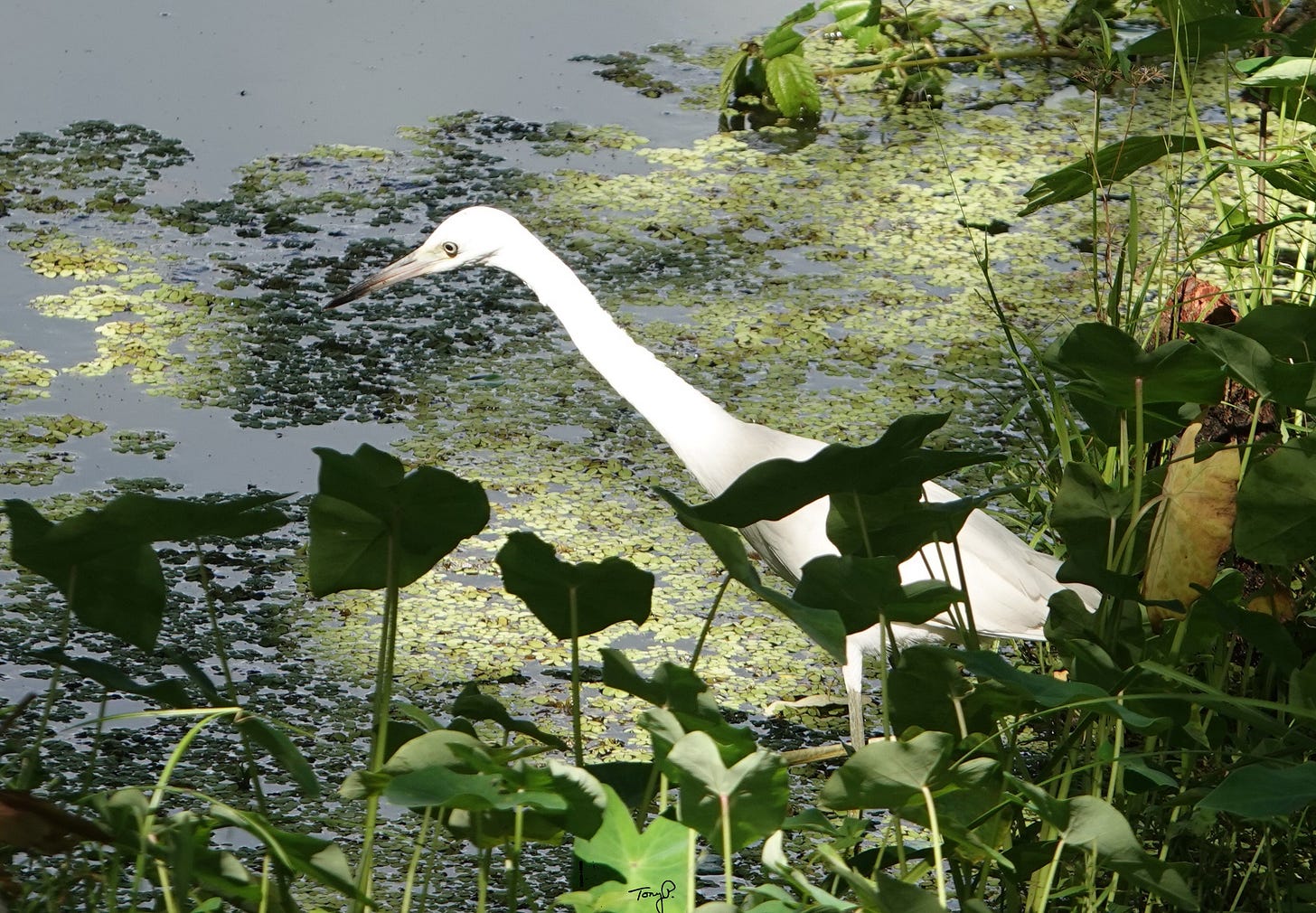In 1970, Hugh Iltis wrote a piece in Bioscience called “Man First? Man Last? The Paradox of Human Ecology.” Dr. Iltis was a renowned botanist and an uncompromising defender of nature who, when once asked by a skeptic “What good is it?” snapped back with “What good are you?” When I heard him lecture faculty and students at the University of North Carolina in 1972 on the cruel impacts humans are having on the environment, I thought, man, this guy pulls no punches.
Dr. Iltis published “Man First?” at a time of surging environmentalism, just months after the first Earth Day. However, even then he found it “frightening” that relatively “few spoke for the wild environment, for nature, for a Morpho butterfly in a Peruvian valley, for a timber wolf chasing caribou in Alaska.” He believed that the focus was too narrowly on ourselves:
The ultimate question one has to ask is this: Shall man come first, always first, at the expense of other life? And is this really first? In the short run, this may be expedient; in the long run, impossible…Not until man sees the light and submits gracefully and moderates the homocentric part of himself; not until man accepts the primacy of the beauty, the diversity, and integrity of nature and limits his domination and his numbers, placing equally great value on the preservation of the environment and on his own life, is there hope that man will survive. The earth and the web of life come first, man comes second; profits and “progress” come last.

Our society ignored Dr. Iltis’ plea. After all, isn’t its purpose to enrich the lives of people, even when, however regrettably, it’s at the expense of other life?” When populations of Morpho butterflies, Panthera lions and others disappear, does it matter all that much?
Before addressing the consequential side of these questions, I want to hit on a closely related matter that is central to the human paradox of putting oneself first and in the end committing ecological suicide: the failure of society to come to terms with its brutal treatment of most non-human life.
Inclusive morality (or lack thereof)
People don’t think much about whether it’s unethical for us to diminish and eliminate other life. Modernity, led by the most powerful nature-exploiting nations that have ever existed, constantly reminds them that wildlife and biodiversity are human resources that require varying degrees of exploitation. Our only moral obligation is to manage these resources, whenever possible, to avoid losing them. Morality is solely our thing, other life is not welcome.
Religions don’t help, or make matters worse (but there are minor exceptions). Since man has dominion over other life, he can treat it as his interests, whims, and requirements dictate. For the most part, philosophy hasn’t helped either. Most practitioners seek a moral justification for dominion. They emphasize differences (not similarities) between humans and non-humans (such as abstract thinking, use of language, length of childhood development, etc.). But they’re stymied by the problem that all species differ from others in some ways, and that individuals of the same species also differ from one another. How is another being’s difference from us moral justification for dominating it?
Attempting to circumvent this problem, philosophical anthropos (“sons of man”) resort to the self-fulfilling argument that since only humans have developed ethics, others can be excluded from moral consideration. I once refuted the claim that “moral reciprocity” was needed for moral consideration, as have others. But I see it reappearing time and time again.
Fortunately, animal rights philosophers such as Richard Ryder, Peter Singer, and Tom Regan have in great detail dismantled the many rationalizations to justify human mistreatment of animals and other life. They plead with society for a more inclusive morality that covers more-than-human life. Among conservationists, Aldo Leopold, over 70 years ago, called for a land ethic that safeguards the entire biotic community.
Nonetheless, the influence on our society of these insightful thinkers has been marginal at best. Today I’m shocked by the extreme anthropocentrism that prevails among world leaders, in the media, across the political spectrum, in religious discourse, and among most scientists.
The anthropocentric credo that dominates modern civilization boils down to this: We have the power to destroy non-human life as we see fit, so we devise schemes to morally justify that, in effect applying a doctrine of “might makes right.”
That’s not an acceptable moral principle for humans, and neither should it be applied to other life. Fairness even for the powerless is increasingly endorsed by society. As a matter of moral consistency and intellectual integrity, if not spiritual oneness with nature, human supremacy should end.

Pragmatic Insight (or lack thereof)
Absent an ethic that protects non-human life, we wind up destroying it. In the end, as Dr. Iltis warned, this leads to an impossible future. When society ignores the intrinsic worth of other life, it destroys an ecological buffer, its margin for error, against its own indiscretions and inevitable miscalculations.
We push exploitation of nature to the limits. Focus entirely on immediate environmental outcomes and crises. Fail to recognize our economic and political limitations. Blindly rely on “resource management” and technology to stop environmental degradation and prevent ecological collapse. We’re a society that finds excuses to go beyond the limits of growth, and ways to circumvent or ignore the few rules we have to restrain us.
What we’ve done to destabilize Earth’s climate proves this point. No seventh generation wisdom has prevented us from building a gigantic civilization based on cheap fossil fuel energy. No college of natural resources or department of environmental sciences has mattered. No argument to conserve “biodiversity” for the sake of humanity has sufficed. Our institutions fail us.
Imagine the world today if we had developed a code of ethics that prohibited behaviors that cause wholesale elimination of wild populations of animals, plants, and other organisms. Out of deference to fireflies, birds, bats, sea turtles, and other life, we would not have covered the world with artificial lighting. We would have greatly limited our roads and highway systems to avoid tremendous injury and death to wildlife. We would not have extinguished vast herds of bison from the Great Plains. We would have put the breaks on carbon emissions, overfishing, and pollution once it became evident that these may harm corals beings and other sea life. These and other moral restraints would have required us to greatly limit our exploitation of Earth, and, yes, our own numbers.
Today we wouldn’t be witnessing a potential climate catastrophe of our own making, widespread oceanic pollution, a 6th extinction, and growing fear of food shortages and civilization’s collapse. In short, there would be no broad-spectrum ecological crisis.
Such a world is still possible. But it will require that we swiftly embrace simpler, less consumptive, less reproductive, and ultimately more rewarding ways of existence.
If we scale down, the Earth, the web of life—and humans—will finally come first.



Can we have these conversations with a majority population that “learns” with 15 second sound bites and is increasingly less inclined to engage in anything intellectually rigorous?
Critical thinking gets us to where you’re at. Unlike most issues we’re facing (abortion, gun rights, gender issues), there is no intelligent other side to your arguments where growth continues and the human race keeps expanding. It’s just scientifically and logically impossible.
We cripple ourselves by refusing to think critically and to encourage that same thought process in others, especially the next generations. Real thinking is hard. Education, active learning, critical thought education and not the common “banking” method used in schools throughout the world should be our focus. People want to feel actively engaged in the world. Unless we revamp our educational system to reflect this we’ll continue to preach and some may pretend to listen, but too few will critically engage with us.
Do as your told and accept things the way they are doesn’t make for good revolutionaries.
McGilchrist in his book “The Matter with Things” argues rather intriguingly that consciousness precedes matter—that it did not somehow “wink into being” (as the Atlantic article you linked to posits) at some point in the evolutionary journey of sea creatures onto the land millions of years ago. This goes along with the discovery of an invisible (to us) field of energy, and the so-called “God particle” (Higgs Boson), etc in physics.
Generally speaking, religion is one of the few places where the idea of a singular “creation” exists—a sense of the whole, the totality of life, including animals, stars, etc. While people rightly criticize the failures of religion, at bottom it is a desire to reconnect with a totality beyond us, whether that totality is God, Gaia, Wakan Tanka (the Great Mystery), the goddess Isis, Shiva, or however the concept manifests. Religion, like yoga, is a search to reconnect with the totality of life and unite with it : look at the word itself—re (again) ligare (to bind, join, connect), so “religion” means to reconnect what is separate. Likewise, “yoga” means to connect, as in the related word “yoke.” We search for union with that totality beyond our limited self or selves.
In my opinion, we should stop demonizing religion and rejecting what it has to offer. Buddhism, Native American teachings of Beauty (the Dine), St. Francis, ancient Mystery cult religions, (such as the Eleusinian Mysteries), Shaivism, etc etc—do we really want to throw the baby out with the bath water?
Thanks again, Tony! Very thoughtful and thought-provoking as always! And great photo of the snowy egret!